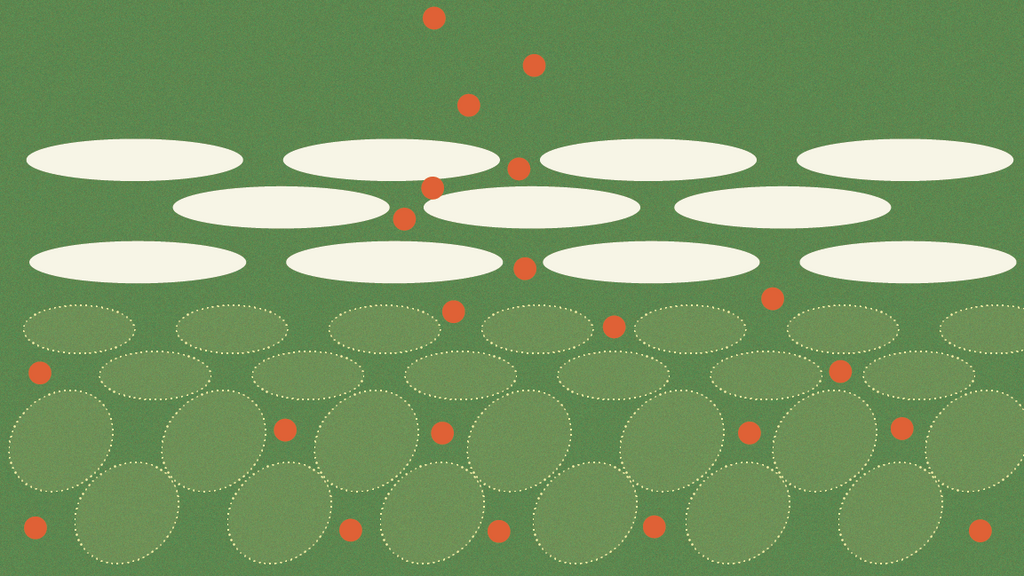
So many skin conditions start with an damaged skin barrier. Your skin is your largest organ. But, as we well know, it’s not a solid surface. The surface of your skin is porous. It lets good things in (water) but it also should, if it’s healthy, keep bad things (pollutants, etc) out. This is what we call ‘the skin barrier’. And a lot of times, if you’re having big issues with your skin, it’s because the skin barrier isn’t in the best shape. Here are all my skin barrier repair tips!
Why is your skin barrier important?
When the skin barrier is compromised, it can lead to a range of issues, including dryness, sensitivity, inflammation, and an increased risk of infections. Conditions like eczema, perioral dermatitis, and psoriasis often involve disruptions in the skin barrier function.
The skin barrier is composed of corneocytes, which are flat, dead skin cells surrounded by lipids (fats)—sounds appealing, right?
It’s amazing, despite the description. These corneocytes form a tight, protective matrix. Lipids, including ceramides, cholesterol, and fatty acids, fill the spaces between the cells, creating a lipid barrier that helps retain moisture and prevents water loss.
But, let's make things more basic...
What's the skin barrier good for?
-
Protection
-
It acts as a shield against external factors such as pollutants, allergens, and harmful microorganisms.
-
Hydration Regulation
-
It locks in moisture (just like a good face oil does). This is crucial because it keeps the skin supple, elastic, and comfortable.
-
Immune Defense
-
It contributes to the body's immune system by preventing pathogens from entering the body.
-
Barrier to UV Radiation
-
The outer layer of the skin, including the skin barrier, provides some protection against the harmful effects of ultraviolet (UV) radiation from the sun.
-
Temperature Regulation
-
It helps regulate body temperature by controlling the loss of water and sweat.
6 Steps to Skin Barrier Repair
Simple steps to take to care for your skin
-
Gentle Cleansing
-
Use mild, hydrating cleanser.
-
Pro tip: Look for something that won’t strip away natural oils from the skin, like GoldenHigh.
-
Moisturize
-
Use a good skin barrier cream or moisturizer that contains ingredients that support the lipid barrier and lock in moisture.
-
Pro tip: Obviously, we love LitFromWithin Face Oil,
-
Avoiding Harsh Products
-
Limit the use of harsh skincare products, exfoliants, or aggressive treatments that can compromise a damaged skin barrier.
-
Cut down on Active Ingredients
-
Reduce the number of active ingrdients you’re putting on your skin daily.
-
Pro tip: You can replace actives like retinol with alternatives such as Broccoli Seed Oil. MoonLitFromWithin is packed with lots of natural ‘actives’ substitutes—it’s nature’s retinol.
-
Get Some Sunshine
-
The sun is good for you. Morning hours and afternoon sun is critical for our health. Even dipping in midday to achieve full spectrum sunshine. Not only will this boost our mood it will provide good-for-you vitamin D3.
-
UV Protection
-
Use sunscreen to protect the skin from UV radiation and prevent a damaged skin barrier—and prevent it in the first place! Use a good mineral sunscreen like this one or this one.
-
Pro tip: An antioxidant-rich rainbow diet of sun-grown foods, herbs, and fats chock full of nutrients, all contributing to our ‘internal sunscreen’.
✨Jenny Jewel✨
Download ‘D Minder’. This app calculates your geographic location, current cloud cover, and the time of year to let you know how long to bask in the sun’s rays and how much vitamin D will be generated that day. The optimal time of day for sunning is morning to solar noon. The dosage depends on the condition of your skin and your natural skin pigmentation. Start with a few minutes a day and build up. Growing up in California, we called this our 'base tan'.

